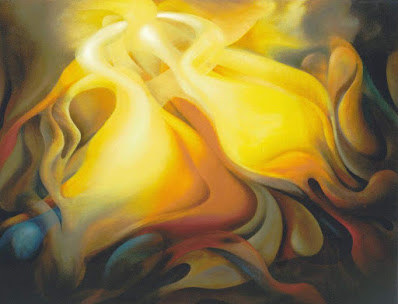Ash Wednesday 2023
Isaiah 58:1-12, 2 Corinthians 5:20b-6:10,
Matthew 6:1-6,16-21, Psalm 103
Just as Advent is the beginning of the New Year, Ash Wednesday and Lent are the beginning of our new life. I think we have a deep desire to start over, to begin again, to turn to God and take a deep, refreshing breath of new life, and to say, here I am Lord, I have heard you calling in the night. Today we are marked with the ashes that remind us of who we are, and whose we are. We are God’s beloved, at our baptism we are marked and claimed as God’s own children, forever. Today we retrace that indelible mark with these ashes, this dust. We are reminded that we don’t get out of this live alive, we are dust, and to dust we shall return. These ashes remind us that God is God, and we are not. These ashes remind us that we are chosen and marked by God’s love, delight of God’s life.
This is an opportunity and our call. We present ourselves to God, just as we are, confident in the promise of starting over and confident that we belong to God. Ash Wednesday, and all of Lent are an opportunity. An opportunity to put all our attention toward the Gospel call to love as Christ loves. Ash Wednesday and Lent are an opportunity to examine ourselves and find where we miss the mark of that love. Ash Wednesday particularly is an opportunity to come to our senses, to be reminded of who and whose we are, to start over, to loosen our heart’s grip on the things that separate us from the love of God and from our siblings. Ash Wednesday is an opportunity to do that which is described in our gospel reading, to give alms, to pray, and to fast.
Far from being a sad story, this is a story filled with hope. It is a story filled with forgiveness. It is a reminder that forgiveness isn’t a one-time deal, forgiveness is every day. This kind of forgiveness doesn’t assign shame or hold a grudge. This kind of forgiveness holds our souls in compassion, this kind of forgiveness heals us and frees us.
Forgiveness is not a single act, but a matter of constant practice. Turning away from all that distracts us from God and God’s love for us, takes constant practice also. We often fall off the shoulder of the road and into the ditch on this journey, and in that ditch, life seems much darker. But we have been marked as Christ’s own forever, we belong to God.
On this day, we recognize our tendency to sin. We recognize our wretchedness, a word that is hard to hear about ourselves, but a word that describes our tendency to fall in the muck and the mess of live, and sometimes even wallow in it. But we are not left there to fend for ourselves. We come to this place of dust again and again. We come because this is the beginning and the end. We come because this is creation, and this is love. We come because we belong to God and to one another. We come because our memories are so short, aren’t they? We so quickly forget about the love that brings us to this day of dust. The love of God in creation, the love that gives up everything for us.
Lent is an opportunity. This journey we begin today shows us what true love looks like. It shows us that God’s heart’s desire is to be with us not only when times are rosy, but also and maybe especially when it seems like our brokenness and vulnerably will get the best of us. God’s love creates us and blesses us and puts us back together when we have disintegrated into the dust. When it seems like we will fall apart into the dust of which we are made, God is there to raise us up, and make us anew.
I encourage you to take this lent opportunity and be intentional. Lent is traditionally a time of prayer and fasting. How can you be intentional about your prayer? There are many ways here at the church. Come to bible study, or come to Wednesday night soup suppers, or come after church on Sundays for coffee and conversation. Each of these is an opportunity to be in prayer with one another. And be intentional about your prayer at home.
Especially in these chaotic times, find a place for quiet, open your prayer book, or the app on your phone, or join us at 10 each day, and pray morning prayer, “O Lord open our lips, and our mouth shall proclaim your praise.” Or evening prayer or compline, “guide us waking o lord, and guard us sleeping, that awake we may watch with Christ, and asleep we may rest in peace.” Make space in your heart, and your mind, and your soul, for Jesus to show up.
How can you be intentional about fasting? When I was a little catholic girl, like many of you, Friday fasting during lent was an ordeal. Today I would like for you to consider what it is that you may need or want to fast from. What is it that is making you anxious? or annoyed? mad? sad? Do you want to put your phone down for an hour each day, and fast from the news? Do you want to fast from the cacophony of noise and sit in the silence for some time each day? Do you want to fast from food that consumes you, and give some away for another to consume?
And that brings us to hope, this day is a day of hope. This dust that we mark our foreheads with today is the burnt palms of Palm Sunday, the palms we wave in triumph as Jesus enters the city of Jerusalem. This dust gives us hope. The story we stake our lives on is the story of resurrection, and resurrection is always preceded by pain, and suffering, and death. Soon enough we will be walking with Jesus to the cross, soon enough. God loves us so very much, that God puts Godself in our place, wraps us in love, and gives us new life, life that we cannot even begin to imagine. Hope is God’s dream for us, that we may walk a journey on this earth, of intention. Love, compassion, prayer, forgiveness, we are given this opportunity of Lent to practice these intentions.
How will you practice love this Lent?
How will you practice compassion this Lent?
How will you practice prayer this Lent?
How will you practice forgiveness this Lent?









